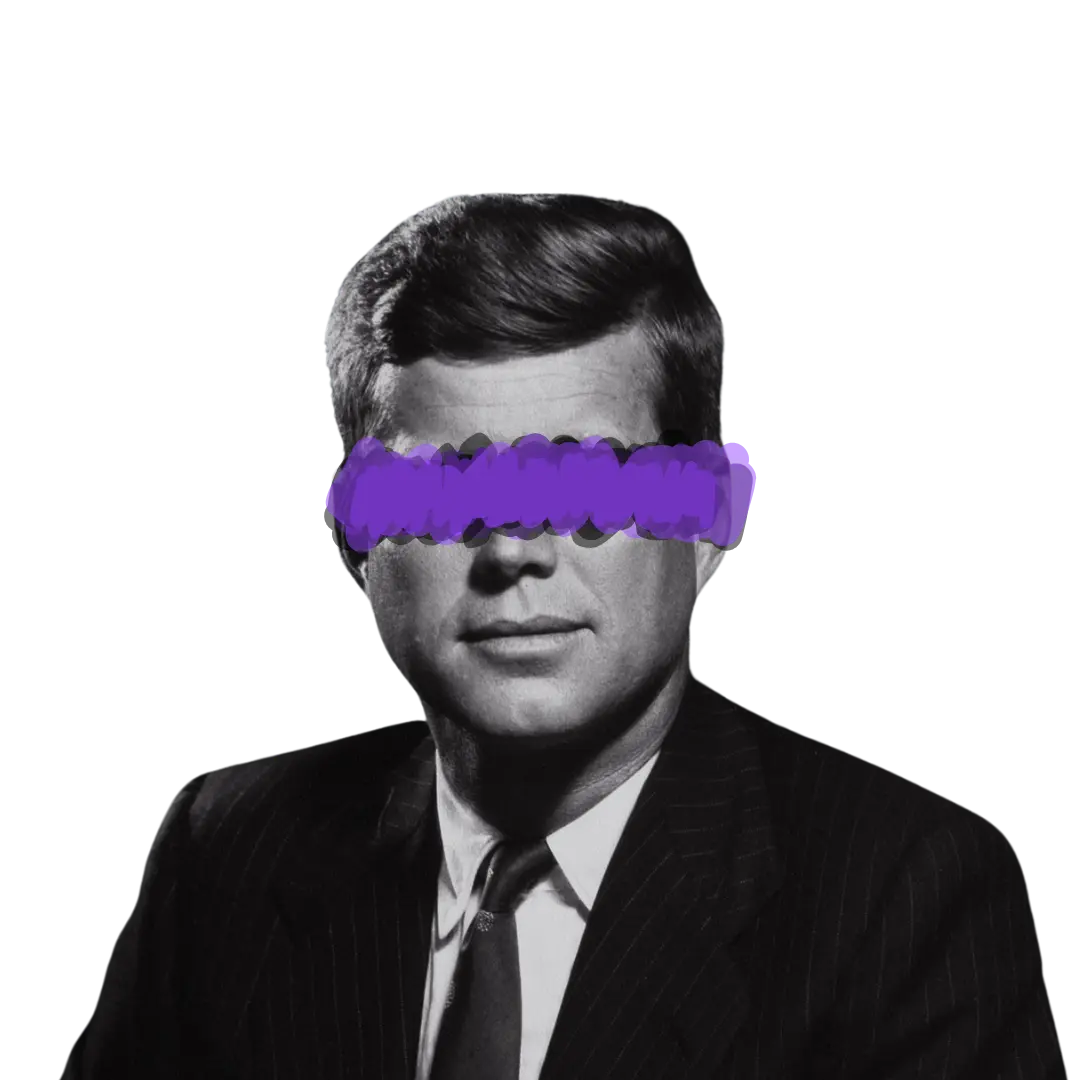John F. Kennedy, America's 35th president, wasn't just a political icon – he was a force of nature, brimming with charm, wit, and an insatiable appetite for life.
But what drove this captivating leader? Let's peel back the layers of JFK's personality and discover the fascinating world of an Enneagram Type 7.
What Was John F. Kennedy's Personality Type?
JFK: The Archetypal Enneagram 7
John F. Kennedy embodied the essence of an Enneagram Type 7 – the Enthusiast. Known for their zest for life, adventurous spirit, and ability to inspire others, Type 7s are the eternal optimists of the Enneagram world.
Type 7s are driven by a core desire to experience life to the fullest, always seeking new adventures and opportunities. They fear being deprived or trapped in pain, which often propels them towards constant activity and stimulation.
JFK's childhood, marked by privilege but also health challenges, likely shaped his Type 7 tendencies. His drive to overcome physical limitations and his family's emphasis on achievement may have fueled his relentless pursuit of new experiences and accomplishments.
Kennedy's Upbringing: Forging a Future President
Born into the prominent Kennedy family, young Jack was surrounded by high expectations and fierce competition. His father, Joseph Kennedy Sr., instilled in his children a drive for excellence and public service.
Despite battling chronic health issues, JFK's resilience shone through. His sister Eunice once remarked, "Jack had a way of taking his illnesses in stride. He never let them get him down."
This early struggle may have intensified his Type 7 desire to squeeze every drop of joy and excitement from life, propelling him towards a future in the spotlight.
Rise to Fame: A Meteoric Ascent
Kennedy's charisma and quick wit catapulted him into the national spotlight. His famous televised debates with Richard Nixon in 1960 showcased his natural charm and ability to connect with audiences – classic Type 7 traits.
Theodore Sorensen, JFK's speechwriter and close advisor, observed, "He had an extraordinary capacity to absorb information quickly and to translate complex issues into simple, clear language." This ability to synthesize information rapidly and communicate effectively is a hallmark of the Type 7 personality.
Personality Quirks and Habits: The JFK Charm Offensive
Insatiable Curiosity
JFK's voracious appetite for knowledge was legendary. He was a speed reader, devouring multiple newspapers each morning. This thirst for information aligns perfectly with the Type 7's desire for mental stimulation and variety.
Risk-Taking and Adventure
From commanding PT-109 in World War II to pushing for the moon landing, Kennedy embraced bold challenges. His famous quote, "We choose to go to the moon in this decade and do the other things, not because they are easy, but because they are hard," epitomizes the Type 7's love for pushing boundaries.
Charm and Wit
Kennedy's quick humor and ability to put people at ease were key to his political success. His press conferences were often punctuated with witty remarks, showcasing the Type 7's natural charm and verbal agility.
Major Accomplishments: Visions of a Better World
Establishing the Peace Corps
Kennedy's creation of the Peace Corps in 1961 reflected his Type 7 idealism and desire to make a positive impact on the world. It embodied his belief that individuals could make a difference on a global scale.
Navigating the Cuban Missile Crisis
During this tense standoff, Kennedy's ability to think on his feet and consider multiple options – characteristic of Type 7s – likely helped prevent nuclear war. His brother Robert later said, "Jack's combination of toughness and restraint... saved the peace."
Championing Civil Rights
Though initially cautious, Kennedy's growing commitment to civil rights demonstrated the Type 7's capacity for personal growth and adapting to new challenges. His June 1963 civil rights address showed a passionate commitment to equality that inspired many.
Drama and Controversies: The Kennedy Mystique
Kennedy's presidency wasn't without its controversies, from the Bay of Pigs fiasco to rumors of extramarital affairs. His Type 7 tendency to seek excitement and new experiences may have played a role in some of these situations.
However, his ability to bounce back from setbacks and maintain public support showcased the resilience and optimism typical of healthy Type 7s. After the Bay of Pigs, he famously took full responsibility, stating, "Victory has a hundred fathers and defeat is an orphan."
JFK's Legacy and Lasting Impact
Kennedy's tragic assassination cut short a presidency full of promise, but his impact on American culture and politics endures. His call to public service – "Ask not what your country can do for you, ask what you can do for your country" – continues to inspire generations.
Interestingly, his nephew Robert F. Kennedy Jr. has followed in the family's political footsteps, though often taking controversial stances. While it's unclear if he shares his uncle's Enneagram type, the Kennedy drive for public engagement clearly runs in the family.
Conclusion: The Enduring Fascination of JFK
John F. Kennedy's Type 7 personality – with its blend of charisma, optimism, and vision – helped shape one of the most memorable presidencies in American history. His life reminds us of the power of enthusiasm and the impact one individual can have on the world.
As we reflect on JFK's legacy, we're left with an intriguing question: How might understanding our own Enneagram types help us tap into our unique strengths and make our own mark on the world?
Check out this blog for an analysis of Jackie Kennedy. And check out this blog for an analysis of Marilyn-Monroe.👀
Disclaimer This analysis of John F. Kennedy's Enneagram type is speculative, based on publicly available information, and may not reflect the actual personality type of John F. Kennedy.

What would you add?